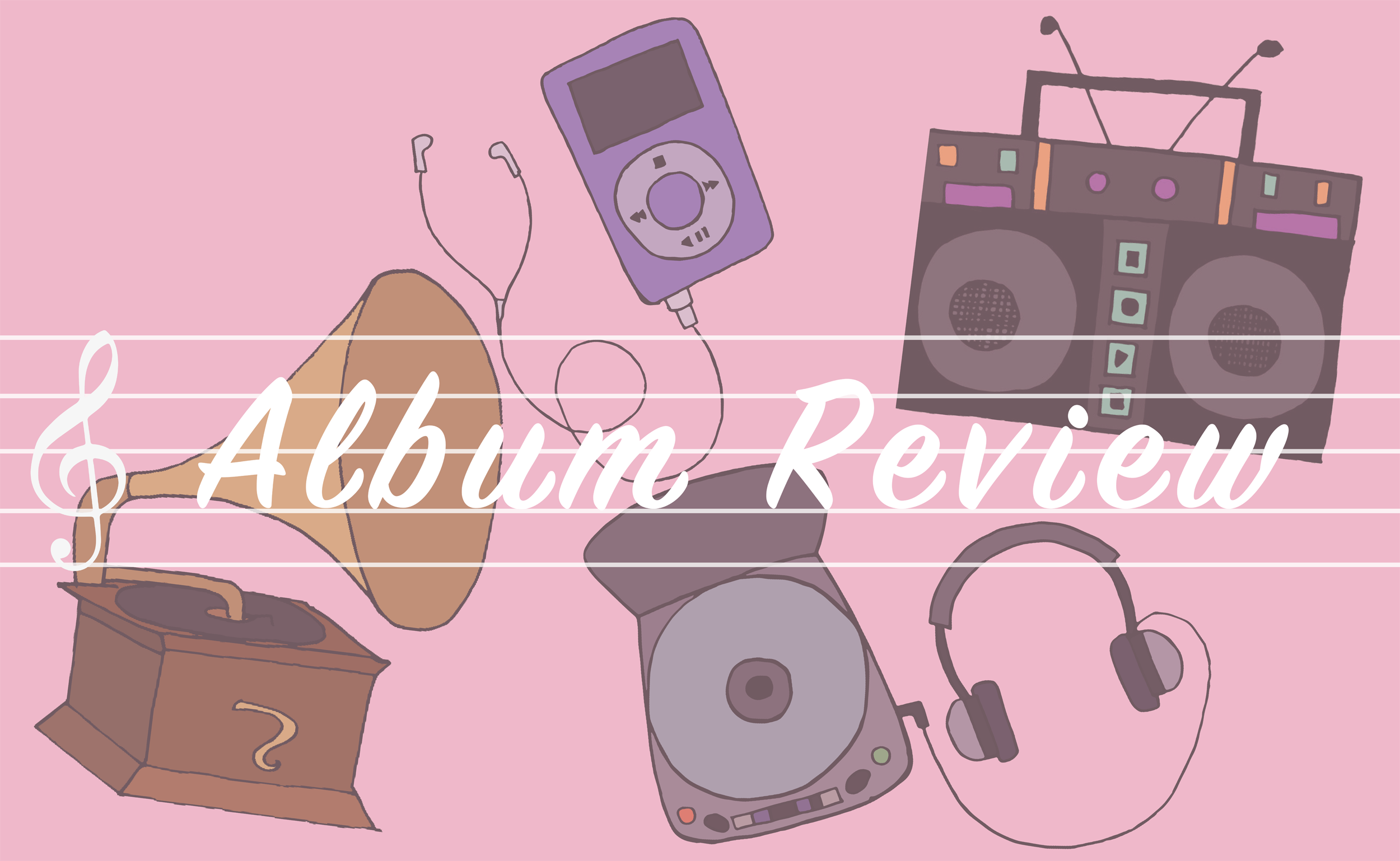Queer and Christian. College student and famous touring musician. Addict and sober role model. In Julien Baker’s hands, reconciling these identities is old news—now, she pushes past them altogether.
Baker’s newest album, Little Oblivions, is a demonstration of an artist continuing to break ground in a now well-defined indie and indie-rock space. In it, she both grows up and manages to become even more interesting. Over the course of just 43 minutes, Baker develops in you an introspective sadness, while still leaving you with time to recover before logging on to your next Zoom class.
The bones of Baker’s personal style are still present: devastating, honest lyrics and a disconcerting level of self-awareness. Six years after her debut, Sprained Ankle, though, she has overcome the self-imposed constraints of stripped-back melody on her previous two albums. Turn Out the Lights (2017) took a shuffling step toward a more complex sound, but its narrative structure tilted toward lacking nuance rather than feeling comfortable in open endings. But now, with a fuller band sound—and still playing many of the instruments herself—she rounds out her songs with soundscapes that reinforce her words, which is where the power in Baker’s music has always been. Throughout, her voice lifts above the production, and when it parts for quieter lines to come through, they are all the more poignant for it.
The album’s first song, “Hardline,” begins with distorted electric organ notes, a boldness admittedly absent from some of the other tracks. The song starts to pick up speed and volume and gives way to a raucous ending that sets up one of Baker’s central questions: “What if things are really as bad as they seem?”
Over the course of the album, she leans into this, and while there are no satisfactory answers, the tone is not overwhelmingly negative. Toeing the line in the indie genre between wallowing and trying to smooth over the jagged edges is a difficult balance. Turn Out the Lights was a bit too attached to providing resolution and uplift, robbing some of the pain of its impact. And this year, resilience seems more appropriate than resolution, which is exactly where Baker lands.
On “Repeat,” Baker uses new tools to her full advantage. A steady guitar holds the rhythm while a chorus of wailing voices backs her during the last chorus. She sings “repeats, repeats, repeats”—there are 13 of them—to finish it off, and her voice disintegrates into electric distortion, wavering and desperate.
Baker abandons constraints in more than just her musical style. Baker has spoken out openly about her struggles with mental illness and addiction as a teenager, along with her subsequent dedication to staying sober. But being held up as a straight-edge role model, inspired in part by her associations with a revived punk movement, left her with dissonant personalities onstage and behind closed doors. On the album, she stops forcing herself into ill-fitting categories and illustrates why her various identities are not always oppositional forces.
“It’s like my whole being and my persona as an artist have to be the same if I don’t want to be called a hypocrite,” she said of maintaining sobriety under the pressure of having an influential platform. “So then it’s like, I find myself trying to enact the best possible version of myself—to constant failure because I’m a human—and then feeling like an imposter or a liar.” Baker fell into a destructive relapse in 2019 and had to take time off touring.
The gulf between public image and private experience is on display in “Relative Fiction,” the fourth track on the album. In the time since the end of her touring and the release of this album, Baker has had to reimagine the straight and narrow path as one with a great deal more deviation. “I’ve got no business praying / I’m finished being good / Now I can finally be okay / And not the way I thought I should,” she sings, having settled a little more easily into her own skin.
In “Faith Healer,” she sings, “Faith healer come put your hands on me / A snake oil dealer / I’ll believe you if you make me feel something,” reminiscent of Rodriguez’s “Sugar Man”: “Sugar man, won’t you hurry / Cause I’m tired of these scenes / For a blue coin won’t you bring back / All those colors to my dreams.” Baker artfully entwines questioning elements of her faith and the discussion of her lapsed sobriety, looking for a way out in submitting to a power of any kind, while fighting her darker side, which on “Heatwave” vows to “Wrap Orion’s belt around my neck and kick the chair out.”
A global pandemic and long overdue racial reckoning are, of course, never far from the artistic and public consciousness. “Ziptie,” the last song on the album, takes a particular look at our present circumstance. Baker weighs the worth of biblical sacrifice on behalf of humankind against the human tendency to squander second chances on hatred and harming one another. “Oh, good God / When’re You gonna call it off / Climb down off of the cross / And change Your mind?” she sings.
On “Favor,” Baker reunites with her boygenius supergroup bandmates, Phoebe Bridgers and Lucy Dacus, to deliver a 12-step program-esque attempt at amends, working through her recent recovery period for an audience. Hearing the three on a track again is sure to send listeners hunting for news about another boygenius album (please, let it be soon).
The intensity of Baker’s self-sacrificial approach to baring her soul for her art raises vital questions for the genre as a whole, especially in the company of her fellow bandmates. Dacus recently tweeted, “Sadness can be meaningful but I got a bone to pick with the ‘sad girl indie’ genre, not the music that gets labeled as that, but the classification and commodification and perpetual expectation of women’s pain.” Bridgers, Baker and Dacus are mouthpieces for a sizeable group of people who are finding an outlet for their own mental health struggles (and more) in their music. The deep emotional connection to art and artists for listeners also feels uniquely personal. Nevertheless, pain and personal narrative are commodities in music, and fans await the next album (greedily, in my case), expecting and anticipating more of Baker turning herself inside-out.
Freeing herself from public and private strictures, Baker is heading somewhere exciting and hopefully even more fulfilling. And whenever she decides to share the next part of her journey, she will no doubt have something beautiful and unflinchingly honest to say about it.
Voice’s Choices: “Song in E” and “Relative Fiction”






